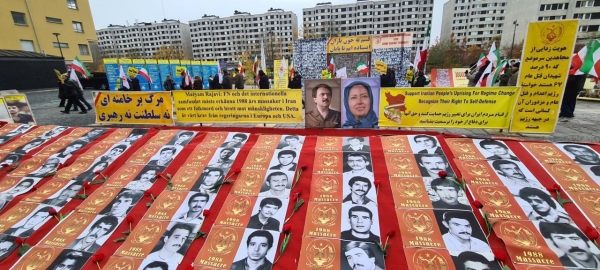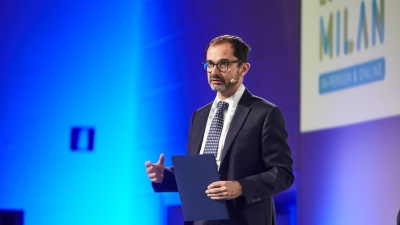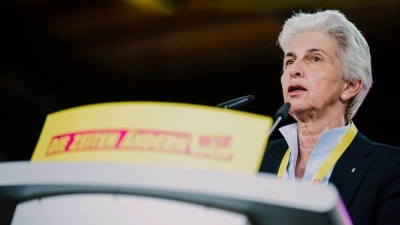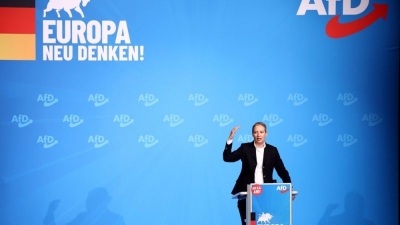’Trial of Iran prison official in Stockholm: Conflict between opposition, regime has non-international character’

Kenneth Lewis, the attorney representing several plaintiffs in the appeal trial of Hamid Noury, a former prison official charged with participating in the massacre of 30,000 political prisoners in the summer of 1988, asserted that the confrontation between the People’s Mojahedin Organization of Iran (PMOI/MEK) and the Iranian regime does not constitute an international armed conflict. Noury, he argued, should be tried for crimes committed during a non-international armed conflict. Lewis highlighted that this internal strife between the MEK and the Iranian authorities began on June 20, 1981, with the quelling of peaceful protests, widespread detentions, and mass executions carried out by the regime. According to statements from Tehran officials, the conflict persists to this day.
In the summer of 1988, under a fatwa from Ruhollah Khomeini, the founder of the country’s ruling theocracy, an estimated 30,000 political prisoners were systematically executed. This brutal crackdown targeted members of opposition groups, with approximately 90 percent of the victims identified as affiliates of the MEK. The mass executions spanned across over 100 prisons in Iran and were carried out with such haste that the victims were secretly buried in mass graves.
This grim period in Iran’s history saw one of the most profound atrocities against humanity since the end of World War II, as described by dozens of eminent international jurists.
Ebrahim Raisi, the current president of Iran’s regime, was at that time a deputy prosecutor in Tehran. Notably, he served on the ‘death commission’ in Tehran, infamously known for its role in sanctioning the executions. His direct involvement in this atrocity has been noted and condemned.
In the wake of these events, the call for accountability has resounded across the international legal community, with numerous esteemed jurists demanding that Iranian officials, particularly Ebrahim Raisi, face justice for their participation in the 1988 massacre. This call for justice underscores the global community’s commitment to ensuring that such severe human rights violations are neither forgotten nor dismissed.
A member of the Islamic Revolutionary Guard Corps (IRGC), Noury served as the assistant to the deputy prosecutor at Gohardasht prison in Karaj, located to the west of Tehran. He was implicated in the direct perpetration of the 1988 mass executions at both Gohardasht and the notorious Evin prison. His involvement in these events has brought him into the focus of international legal proceedings, reflecting the ongoing efforts to address past atrocities.
AdvertisementNoury was detained at Arlanda Airport in Stockholm on November 9, 2019, as he arrived in Sweden. The Swedish authorities arrested Noury based on the principle of "universal jurisdiction," citing his alleged involvement in the 1988 mass execution.
During the initial trial, which commenced on August 10, 2021, and spanned 92 sessions, Noury was ultimately sentenced to life imprisonment on July 14, 2022, after being found guilty. This marked a historic precedent as it was the first instance of an Iranian regime official being held legally accountable for the 1988 massacre.
Mr. Lewis, in his legal arguments, emphasized that the longstanding conflict between the Iranian resistance and the Iranian regime began in 1981, centering on issues of democracy and the human rights of Iranian citizens. He maintained that this was an internal, non-international conflict, continuing to this day. Moreover, Lewis refuted the allegations that the MEK’s National Liberation Army of Iran had engaged with Iranian regime forces with assistance from the Iraqi army, dismissing such claims as propaganda disseminated by the Iranian regime.
Lewis pointed out that the Iranian regime’s narrative, which portrays the MEK as having been supported by the Iraqi army in their operations, is perpetuated by individuals presenting themselves as experts with ties to Tehran. One such individual is Rouzbeh Parsi, who was recently revealed to be part of the "Iranian Experts Initiative" and had active communications with the Iranian Ministry of Foreign Affairs, consistently echoing Tehran’s stance in his writings and analyses. Parsi has not denied these connections.
Further challenging Tehran’s narrative, the veteran Swedish attorney cited a written statement by Ambassador Lincoln Bloomfield, a former US Assistant Secretary of State, who testified before the US Congress in 2011. Mr. Bloomfield’s statement stated unequivocally that at no time during the Iran-Iraq war, including during the "Eternal Light" operation carried out by the NLA, did Iraqi military forces participate in operations with or alongside the MEK forces.
To substantiate the MEK’s autonomy, Lewis presented a document from December 9, 2002, issued by the Iraqi authorities to the United Nations Monitoring, Verification and Inspection Commission (UNMOVIC). This document clearly stated that the MEK’s facilities in Iraq were not under Iraqi control. The document declared, "The facilities belonging to the People’s Mojahedin are under the authority of this organization without the interference of the Iraqi government," reinforcing the position that the MEK operated independently of Iraqi government oversight.
In his presentation to the court, Mr. Lewis laid out a substantial array of evidence aimed at establishing the independence of the MEK from Iraqi influence and reinforcing the argument that the internal armed conflict within Iran persisted beyond 1988.
Lewis, who acts as legal counsel for several MEK members who survived the 1988 massacre and now reside in Ashraf 3 — an enclave in Albania that houses thousands of MEK members — put forth documents to illustrate the financial autonomy of the MEK, particularly throughout the time when its members were based in Iraq.
Key pieces of evidence included two banking records which Lewis presented during the trial. These documents detailed financial transactions in which the MEK transferred a sum of 8 million dollars from the Swiss Credit Bank to the Iraqi government. In exchange, the MEK was to receive Iraqi dinars for their operational expenses within the country. This financial activity, according to Lewis, underscores the independence of the MEK from the Iraqi state.
The sensitivity of the Tehran regime to this trial was highlighted by Lewis. The case of Noury and his conviction have attracted significant attention and provoked discussions at the highest levels of government. This includes dialogue between Iran’s foreign minister and senior officials from Sweden, including the Swedish foreign minister, demonstrating the case’s diplomatic significance and its potential implications for international relations.
Share this article:



